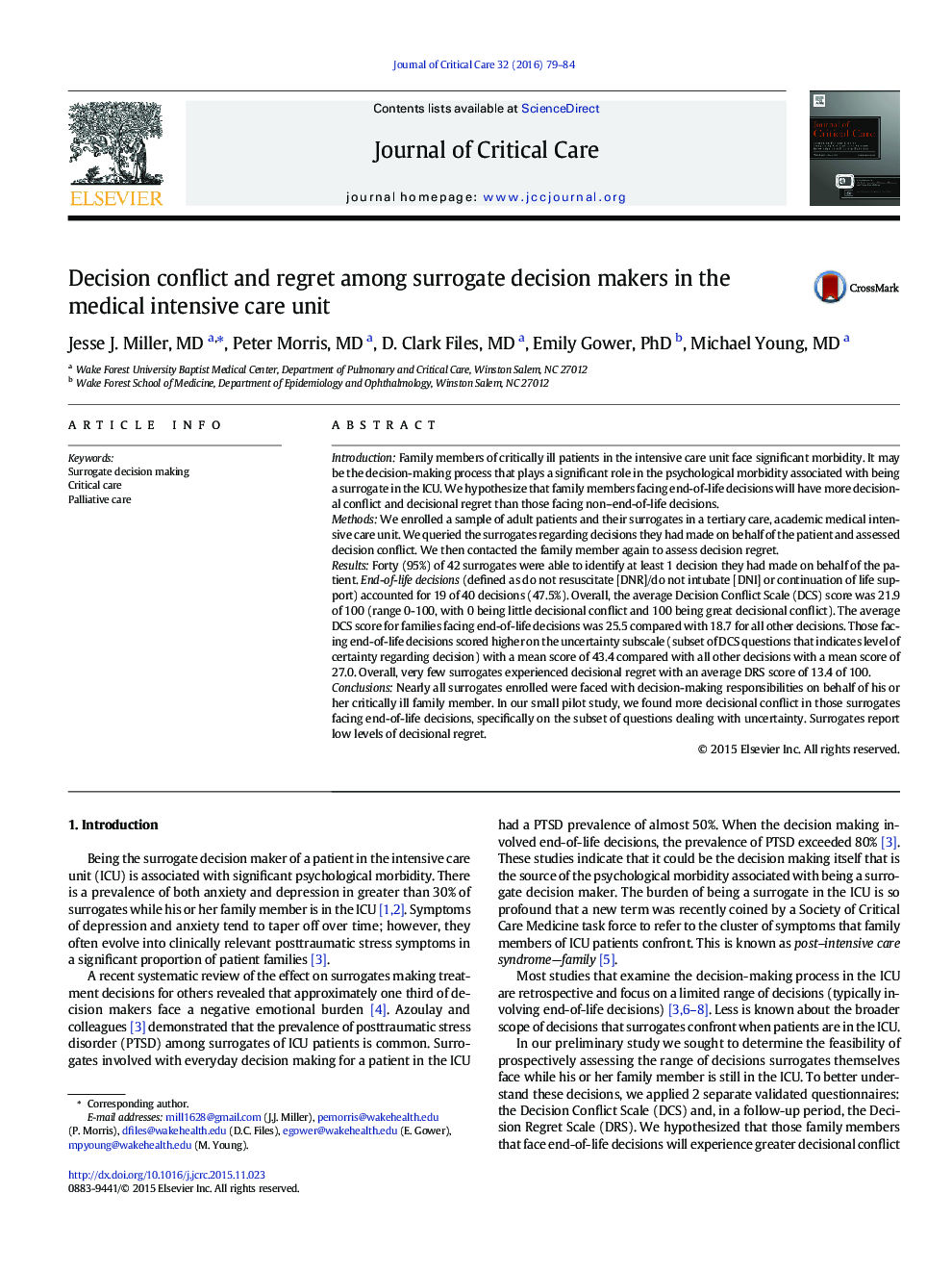| کد مقاله | کد نشریه | سال انتشار | مقاله انگلیسی | نسخه تمام متن |
|---|---|---|---|---|
| 2764479 | 1567680 | 2016 | 6 صفحه PDF | دانلود رایگان |
IntroductionFamily members of critically ill patients in the intensive care unit face significant morbidity. It may be the decision-making process that plays a significant role in the psychological morbidity associated with being a surrogate in the ICU. We hypothesize that family members facing end-of-life decisions will have more decisional conflict and decisional regret than those facing non–end-of-life decisions.MethodsWe enrolled a sample of adult patients and their surrogates in a tertiary care, academic medical intensive care unit. We queried the surrogates regarding decisions they had made on behalf of the patient and assessed decision conflict. We then contacted the family member again to assess decision regret.ResultsForty (95%) of 42 surrogates were able to identify at least 1 decision they had made on behalf of the patient. End-of-life decisions (defined as do not resuscitate [DNR]/do not intubate [DNI] or continuation of life support) accounted for 19 of 40 decisions (47.5%). Overall, the average Decision Conflict Scale (DCS) score was 21.9 of 100 (range 0-100, with 0 being little decisional conflict and 100 being great decisional conflict). The average DCS score for families facing end-of-life decisions was 25.5 compared with 18.7 for all other decisions. Those facing end-of-life decisions scored higher on the uncertainty subscale (subset of DCS questions that indicates level of certainty regarding decision) with a mean score of 43.4 compared with all other decisions with a mean score of 27.0. Overall, very few surrogates experienced decisional regret with an average DRS score of 13.4 of 100.ConclusionsNearly all surrogates enrolled were faced with decision-making responsibilities on behalf of his or her critically ill family member. In our small pilot study, we found more decisional conflict in those surrogates facing end-of-life decisions, specifically on the subset of questions dealing with uncertainty. Surrogates report low levels of decisional regret.
Journal: Journal of Critical Care - Volume 32, April 2016, Pages 79–84
